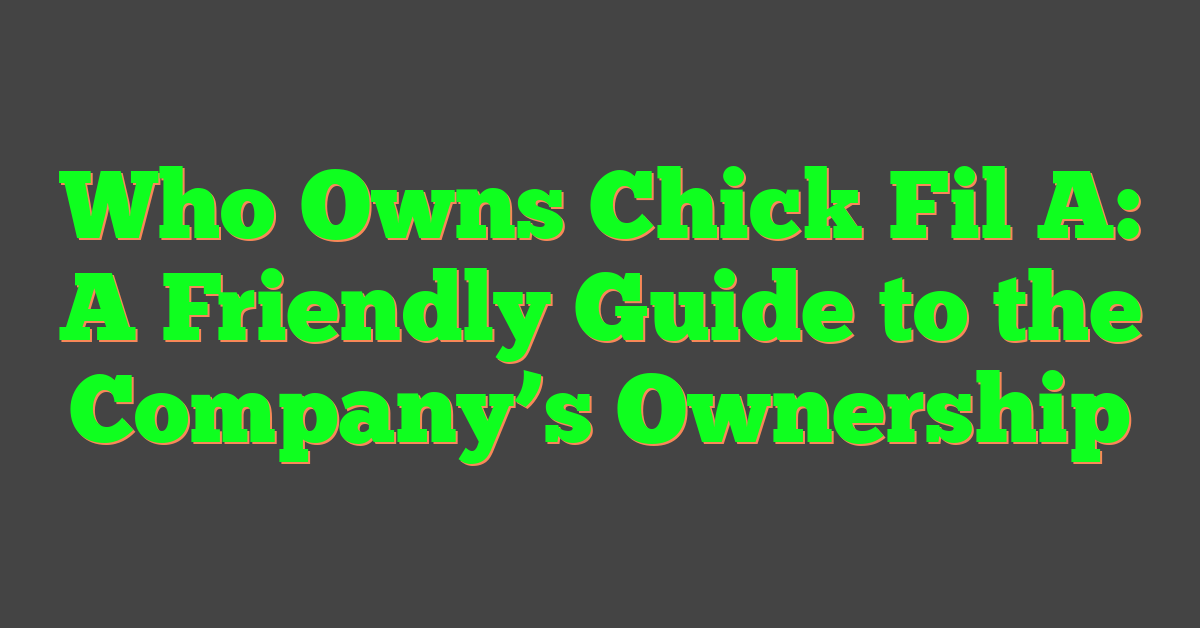The prospect of writing a book comes with the excitement of sharing your ideas, stories, or expertise with the world, but alongside that creative endeavor is the question of profitability. Whether considering traditional publishing or self-publishing, entering the publishing world can be a potential source of income. Depending on several factors like the chosen genre, market demand, and publishing model, the financial outcome can vary widely among authors. Advances and royalties are key components in traditional publishing earnings, while self-publishing allows authors to retain a higher share of the profits but often requires a more hands-on approach in marketing and sales.

Understanding the financial aspects of publishing can help set realistic expectations. The process involves far more than writing and selling—the costs of production, whether time, effort, or monetary investment, are a part of the equation. For those looking to maximize their revenue, exploring additional income streams beyond book sales, such as speaking engagements or writing workshops, can be beneficial. Developing effective marketing strategies and building a fanbase are crucial for long-term success and sustainable income from writing.
Key Takeaways
- The profitability of writing a book varies and is influenced by factors like genre and publishing method.
- Authors must consider not only sales but also the associated costs of production and marketing.
- Diversifying income streams can enhance an author’s earning potential beyond book royalties.
The Basics of Book Profitability

When you’re diving into the world of literature, understanding how authors earn money is crucial. So, let’s break down the basics of book profitability and what it could mean for you as an aspiring author.
Revenue Streams
- Book Sales: Your primary source of income, typically.
- Royalties: A percentage of the book’s price that you receive upon each sale.
- Advances: An upfront payment from publishers against future royalties.
Costs to Consider
- Production: Includes editing, design, formatting, and printing costs.
- Marketing: All activities to promote your book.
- Distributions: Fees for getting your book to retailers or direct to consumers.
Profit Calculations
Profit = Revenue – Costs
You’ll only start making money once your book’s sales surpass the total costs.
EBook vs Printed Books
EBooks can be especially profitable due to their lower production costs. Keep in mind, printed books have their charm and can be lucrative too if they sell well.
Thinking Long-Term
Making money by writing books often isn’t a get-rich-quick scheme but a gradual build over time. Your income might start small, but as you grow your readership, your earnings can increase.
Remember, every author’s journey is unique. With dedication and savvy business strategies, writing books can be a fulfilling and profitable venture.
Choosing a Publishing Route
https://www.youtube.com/watch?v=IX6LggnkxG8&embed=true
When deciding to publish a book, you’ll need to choose between traditional publishing, where a publishing house handles most of the process, and self-publishing, which gives you more control and potentially higher royalties.
Traditional Publishing
In traditional publishing, you submit your manuscript to publishing houses or literary agents in hopes of securing a book deal. If a publisher is interested, they may offer you an advance against future book royalties. This advance can vary widely and is paid upfront. Royalties from book sales are then earned once the advance has been ‘earned back’ through sales. The benefit here is that the publisher covers editing, design, marketing, and distribution costs.
Self-Publishing
With self-publishing, you take on the role of the publisher. This approach gives you full control over every aspect of the publication process, from the book cover to marketing strategies. While you bear the initial costs, your book royalties are usually higher per sale compared to traditional publishing routes. Self-publishing platforms typically offer various tiers of service, from basic distribution to full packages including editing, design, and promotional tools.
Understanding Book Advances and Royalties
https://www.youtube.com/watch?v=yAYeomyyeP8&embed=true
When you dive into the world of publishing, book advances and royalties are financial terms you’ll frequently encounter. An advance is essentially a pre-payment on your future royalty earnings. It’s what a publisher pays you upfront when they decide to publish your book.
Royalties are ongoing payments that you receive as your book sells. They are calculated as a percentage of the book’s sales, depending on the contract you have with your publisher. These percentages vary widely, but you might, for example, make a 7.5% royalty on every paperback sold and a higher percentage for every eBook due to the lower costs of digital production.
| Format | Royalty |
|---|---|
| Paperback | ~7.5% |
| eBook | ~25% |
Remember, you won’t see any royalty payments until your book “earns out” its advance. This means your book must sell enough copies to cover the advance you were paid. If your book sells exceptionally well, after “earning out,” you’ll start to receive additional royalties.
For more detailed info about how royalties are broken down, you might want to read through a comprehensive guide that unpacks the intricacies of these payments. Also, to understand the full impact and typical rates of royalties, checking out an overview on how book advances and royalties really work can be quite enlightening.
Navigating advances and royalties can be complex, but getting a solid grasp on these concepts is crucial for a profitable writing career.
Costs of Writing and Publishing a Book
https://www.youtube.com/watch?v=AiHcYfx8d8E&embed=true
Before your book reaches the hands of eager readers, there are several costs you’ll need to account for. From perfecting your manuscript to getting the word out, each step can add up, impacting your overall profits.
Editing and Production Costs
Editing: Engaging a professional editor is crucial for polishing your manuscript. Depending on the length and complexity of your book, as well as the editor’s experience, you could be looking at anywhere from a few hundred to several thousand dollars.
- Copyediting: From $0.01 to $0.05 per word
- Developmental editing: From $0.07 to $0.12 per word
Production: After editing, there are production costs to consider, which include cover design, formatting, and typesetting. A professional cover design ranges from $100 to $1,000, while interior formatting can cost between $500 and $1,500.
Marketing and Distribution Expenses
Marketing: Effective book marketing is essential for visibility. You might need to budget for promotional materials, website design, and social media advertising. Costs can vary widely, reaching into the thousands if you opt for comprehensive campaigns.
- Social media ads: Starting at $20 and up
- Book trailers: $300 to $3,000
Distribution: Getting your book into readers’ hands has its own set of costs. For print books, distribution might include printing, warehousing, and shipping, which eats into your margins. For eBooks, distribution fees often come as a percentage of each sale, typically around 30% of the retail price on platforms like Amazon.
Remember, these expenses vary widely based on the scale and quality of services you choose. Prioritize your budget to invest where it counts the most for your book’s success.
Maximizing Sales and Revenue

To see real financial success from your book, you must focus on maximizing sales and revenue. This involves strategic efforts to build your presence, tap into various sales channels, and provide your content in multiple formats to appeal to a wider audience.
Building an Author Platform
Your author platform is crucial for driving book sales. Start a blog, create engaging social media profiles, and regularly interact with your followers. By establishing a strong personal brand, you’ll not only attract readers but also create a loyal fanbase that will be the first to purchase your new releases.
Leveraging Online Marketplaces
Amazon’s algorithm can significantly boost your visibility. To leverage this, optimize your book’s metadata with relevant keywords and categories. Run Amazon ads and encourage reviews to increase your book’s ranking. Ebooks can be particularly lucrative, as self-published authors can earn royalties up to 70% on Amazon.
Expanding Reach with Multiple Formats
Don’t limit yourself to a single format. Expand your reach by offering print books, ebooks, and audiobooks. Each format caters to a different reader base, increasing your overall book sales. Print-on-demand services make it feasible to offer physical books without a massive upfront investment, and audiobooks have seen a surge in popularity, providing a new avenue for revenue.
Marketing Strategies for Authors

As an author, strategically marketing your book is crucial to your success. In a landscape crowded with countless titles, it’s important to utilize the right platforms and connections to stand out.
Utilizing Social Media
Social media serves as an essential tool for book marketing, allowing you to reach and engage with a vast audience. Create engaging content on platforms like Twitter to generate buzz around your book. Use hashtags, share snippets, and host live Q&A sessions to draw in readers and create a community around your work.
Cultivating an Email List
Building a robust email list enables direct communication with your readers. Provide exclusive content such as sneak peeks or early chapters to encourage sign-ups. Regular updates about your writing journey can personalize the experience and keep your audience invested.
Networking and Industry Connections
Foster strong industry connections to gain support and expand your author platform. Attend writing events and book fairs to meet fellow authors, publishers, and agents who can offer valuable insights and opportunities. Collaborate with other authors for cross-promotions to amplify your book marketing efforts.
Additional Revenue Streams for Authors

When you embark on a writing career, your book royalties are just the tip of the iceberg. There are a variety of ways to supplement your income and potentially increase your net worth as an author.
Consulting Services: Share your expertise by offering consulting services to aspiring writers or businesses. Your knowledge is valuable, and many clients are willing to pay for personalized guidance.
Coaching Services: Similarly, personal coaching services can be a rewarding way to help others while earning income. Whether it’s writing, publishing, or marketing coaching, your insights can make a real difference to your clients’ success.
Speaking Engagements: You can find lucrative opportunities through speaking engagements. Conferences, workshops, and seminars are always looking for knowledgeable speakers to share their experiences.
Merchandise: Leverage your book’s brand and expand its universe through merchandise. From t-shirts to mugs, your readers might love to own a piece of their favorite book’s world.
Bonus Material: Offer bonus content that complements your book—think behind-the-scenes insights, additional chapters, or character backstories. This can be especially appealing to your most dedicated fans.
Using these methods can not only boost your income but also enhance your connection with readers. Diversify wisely, and you’ll build a more sustainable and profitable writing career.
Financial Considerations for Authors
When you embark on the journey of writing a book, it’s important to weigh the financial risks. Your potential earnings often start with an advance if you go the traditional publishing route, which could be anywhere from $1,000 to $10,000 for a first-time author. Remember, those royalties, typically 5-18% after earning out your advance, only start trickling in once the initial advance is recouped by the publisher.
- Advances: $1,000-$10,000 (traditional publishing)
- Royalties: 5-18% post advance (traditional publishing), up to 70% (self-publishing ebooks)
If you’re self-publishing, you won’t get an advance, but your royalties per book sold could be considerably higher, reaching up to 70% on ebooks. It’s worth noting, though, that self-publishing also means you’ll bear the full cost of production and marketing.
As a self-published author, you’re essentially running a small business. This entails additional responsibilities, like tracking expenses and managing taxes. Keep good records of every expense related to your writing—editorial services, cover design, advertising, and book tours—as these can be deductible business expenses.
- Self-Publishing Costs: Varies (editing, cover design, marketing)
- Tax Deductions: Editorial services, marketing, etc. (if applicable)
Keep in mind that a traditional publisher will handle many upfront costs for you, but you’ll have less creative control and potential earnings over the long term. Whatever path you choose, make sure to have a clear budget and a plan to manage your earnings and expenses effectively to ensure your book project is not just a creative success, but a financial one too.
Genre-Specific Insights
When you dive into book writing, your potential profitability greatly hinges on the genre you choose. If you’re looking to captivate readers and possibly earn significant income, you’ll want to get cozy with the tidbits that make each genre and its subgenres attractive to their respective niche audiences.
Fiction and Its Subgenres
Fantasy is a magical realm that can be exceptionally rewarding, especially if you’re crafting a trilogy or series that allows readers to deeply immerse themselves in your world-building. The trick is to create a universe compelling enough to keep them hungry for more.
In sci-fi, the interplay of science and imagination seeks to engage readers who are keen on exploring futuristic concepts and otherworldly adventures. Your job is to fascinate them with innovative ideas and plausible scientific theories sprinkled throughout your narrative.
Romance novels promise a devoted readership. To meet their expectations, it’s essential that your characters’ emotional journeys resonate deeply and authentically. When done right, the bond you form with your readers can lead to a profitable writing career.
Non-Fiction and Educational Content
As for non-fiction books, the road to profitability often lies in delivering content that not only educates but also offers practical applications. Your expertise can place you as an authority in your field, making your book the go-to resource for those hungry for knowledge.
Consequently, non-fiction writers must understand that their target audience is looking for trustworthy information. By meticulously researching and presenting your subject matter, you ensure that your readers come away informed and satisfied. This builds your reputation, which in turn, can have positive effects on book sales.
Building a Sustainable Career as an Author
Embarking on a career as an author requires not only talent and passion but also a strategic approach to ensure long-term success. Here you’ll discover how to connect with your readers and commit to ongoing self-improvement, two vital components to becoming a successful full-time author.
Engaging with Readers
Building a loyal target audience is crucial for creating a sustainable author career. Your author website is the hub of your online presence, where you can share updates about your work, upcoming series, and events. Make sure it showcases your personality and books, and consider adding an email sign-up form to stay in direct contact with your readers. Social media platforms offer another way to engage with your audience regularly; by fostering this connection, you ensure that readers will look forward to your next release.
Offline interactions are just as important, and you can solidify your readership through workshops, book signings, and speaking engagements. Remember, every interaction with your audience is an opportunity to make an impression and build your community of readers.
Continuous Learning and Improvement
As an author, committing to continuous learning is non-negotiable. Attend writing workshops and seminars to refine your craft. A full-time author never stops learning. By immersing yourself in learning, you keep your writing skills sharp and stay ahead of industry trends.
Moreover, seek out feedback on your writing regularly. Join writing groups or hire a professional editor to ensure that each book you publish is better than the last. Consider teaching writing workshops as well; not only can it be an additional income stream, but teaching is a powerful way to deepen your understanding of the writing process.
Cultivating a sustainable author career is a balancing act that involves crafting engaging content, connecting deeply with your audience, and being a perpetual student of the art of writing.




